Reverend Ruth Banks Brown
Black women who have felt the call to preach have often been constrained by male clergy and denominational organizations from being accepted and affirmed as preachers of the Gospel. While women have been integral to the vitality and longevity of the black church from its inception, the black pulpit has often remained off-limits to them. Although they have struggled to live out their call to Christian ministry, black women have persevered and even triumphed over these adverse circumstances and roadblocks purposely put in their pathway. One such woman was Reverend Ruth Banks Brown, a woman from my hometown of Beaumont, Texas who chose to stand against oppressive forces at Antioch Missionary Baptist Church and in the local Baptist Minister’s Alliance. In this article, I suggest that Reverend Ruth Banks Brown is an illustration of a womanist moral agent because she decided to fight for the equality and acceptance of herself and future women who might feel the call to ministry.
Womanist moral agency is defined as engagement with social discourses that marginalize Black women in which a moral agent resists various forms of oppression that endanger the Black woman’s identity, talents and potentialities and fights to change the circumstances that hinder the Black community, such as inequality, sexism, and racism. This allows the agent to position themselves in a way that allows them to make strides for not only themselves but for their entire community by working to accomplish liberation and justice for all.
Ruby Hurley’s Womanist Moral Agency, https://glamportal.auctr.edu/exhibits/show/hurleywomanistmoralagency/hurleywomanistmoralagency
In light of Reverend Ruth’s life, I see womanist moral agency as the ability to stand against the oppressive forces of inequality and sexism within the Church to bring liberation for generations of black women clergy. Reverend Ruth was a moral agent under the constraints of sexism, erroneous interpretations of scripture, and a local church and national denomination which restricted the leadership roles of women in the Church. Reverend Ruth faced sexism from hostile men who believed that a woman was not allowed to preach and were openly malicious to her because she stood against this belief. To gain insight about her life and her struggle, I interviewed her son, Edward Brown, II, her sister-in-law, Emma Brown, Lorraine Lemons, a member of Antioch, and the current Pastor of Antioch Missionary Baptist Church, Dr. John R. Adolph.
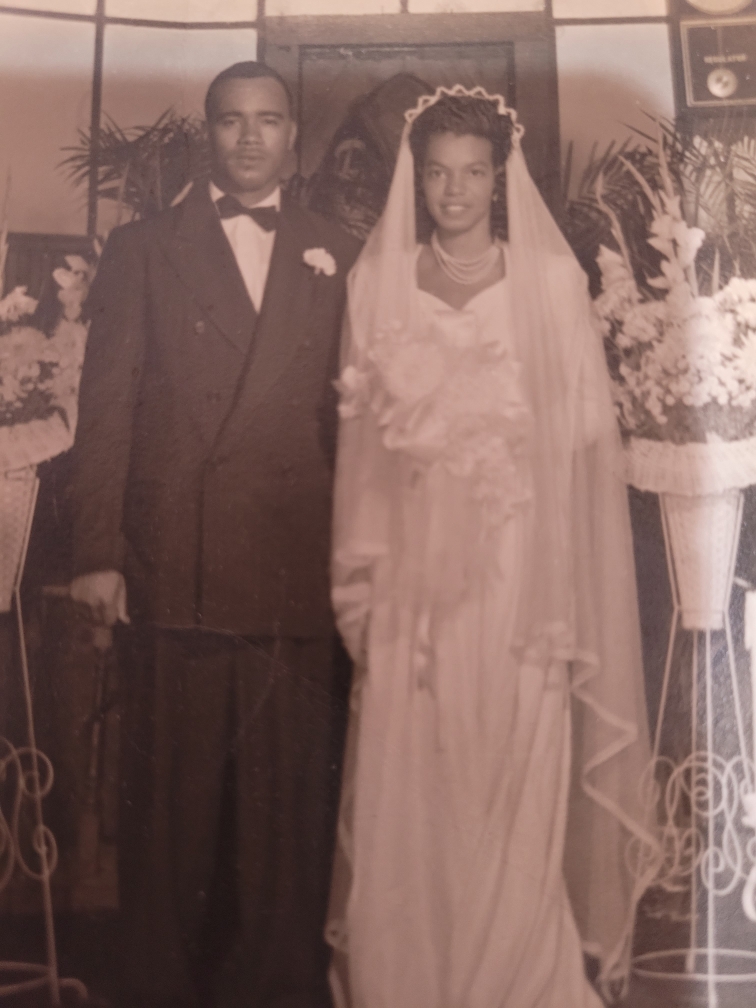
Ruth Naomi Banks Brown was born May 17, 1923, to Reverend Mark Timothy Banks, Sr., and Mrs. Yola Oge Banks.1 She was the second oldest of seven siblings and was educated in the public school system of Beaumont, TX. She received a Bachelor of Arts with honors, in Religion and Secondary Education from Bishop College in 1949. She received a second Bachelor of Arts in Social Sciences from Southern University in 1956; and a Master of Arts in Counseling and Guidance from Texas Southern University in 1972. She married Reverend Edward Willis Brown on August 15, 1950, and they were blessed with one son, Edward W. Brown, II. Ruth was a committed educator for over 30 years, teaching in public schools in Beaumont, Baton Rouge, Louisiana, and Houston, Texas. She was recognized as “The Most Prominent Educators of Texas,” by the Beaumont Alumnae Chapter of Delta Sigma Theta Sorority, Incorporated.
Edward Willis & Ruth Naomi Banks Brown – August 15, 1950
In 1958, Reverend Edward Brown was selected to serve his first tenure as Pastor of Antioch Missionary Baptist Church of Beaumont, TX. This tenure lasted 10 years, after which he served as Pastor of Antioch Baptist Church of Houston, TX. While nothing is known about Ruth’s call story or process to ministry, it is assumed that at some time between the Rev. Brown’s first and second tenure at Antioch Beaumont, she was licensed and ordained by her husband. Pastor Brown, in the past believed that God did not call women to preach but at some point, must have shifted in his theological beliefs and accepted the ministry of his wife. Emma Brown believes this shift happened as they were now in Houston where ideas about the ministries of women were more progressive and liberative. The Browns returned to serve Antioch-Beaumont in 1972 and remained as Pastor and First Lady until his retirement in 1991.
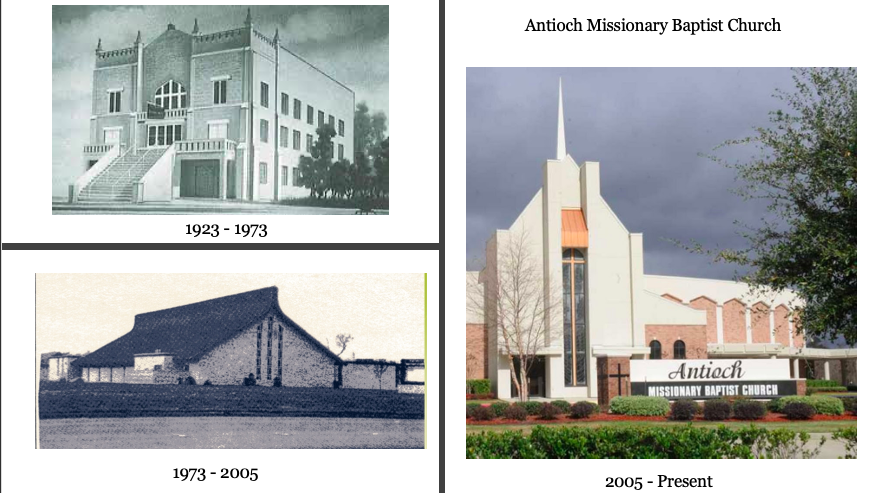
The Browns were active in the movement for Civil Rights and stood along with Pastor G.W. Daniels of Sunlight Baptist Church and the Baptist Minister’s Alliance to bring about change for black people in Beaumont, Texas. They were active in the National Association for the Advancement of Colored People and marched for Civil Rights. In the early 1960’s, Edward Brown, II was the first black student to integrate schools in the Beaumont Independent School Districts. They won a landmark court case against the school district, effectively starting the process to end desegregation in Beaumont and the surrounding areas. This ability to persevere and to nonviolently fight against injustice remained a hallmark of Reverend Ruth’s later struggle with the Baptist Minister’s Union and at Antioch Baptist Church.

Pastor Edward Brown and Pastor G.W. Daniels and their wives were friends and shared commonalities in many issues of justice and faith. Pastor Daniels was famous in the city of Beaumont for his work with Civil Rights, helping to establish affordable housing in the city, and working to increase the financial stability of many of the city’s residents. However, he was also infamous for his stance on women in ministry and his refusal to allow women to enter his church wearing pants. For many years, even after his death, there was a plaque that hung in the foyer of the Sunlight Baptist Church informing women they could not enter the sanctuary while wearing pants. He was known to have refused the entrance of a policewoman there to assist a member of his congregation because she was wearing the pants of her uniform. He was not alone in his belief regarding women’s behavior and roles in the Church. Emma Brown pointed out that during this era of the Church, “the constraints were the norm and were typical of many Black Baptist churches of that time including Antioch.”2
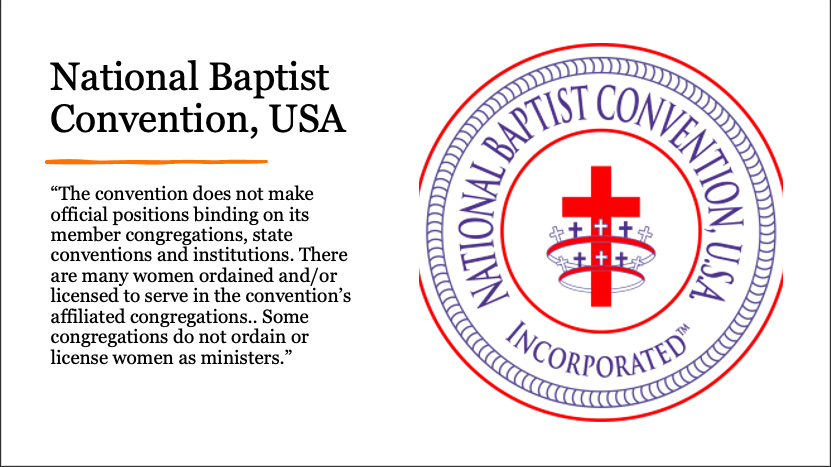
The Baptist Minister’s Union of Beaumont & Vicinity is open to all male Pastors of Baptist Churches in Beaumont and surrounding areas. Most of the members of the union still hold conservative views when it comes to the roles and behaviors of women in the Church. Reverend Ruth made the decision to pursue full acceptance into the union despite knowing the beliefs of the male Pastors. She felt because she was a Baptist Minister she should be allowed to be a member of the union. Reverend Ruth attended the monthly meetings although she knew her presence was not wanted and that she could be escorted from the meetings. Emma Brown stressed that the male clergy “resented her presence” at the meetings, but she “continued to go even though she knew she was not wanted there.”3 Pastor John Adolph remembered an incident he witnessed between Reverend Ruth and the members of the Baptist Minister’s Union. He recalls, “on one occasion, the men that made up the assembly removed her from one of the weekly meetings at the direction of the president.” She attended the meeting knowing that this would happen but did it anyway demanding to be both seen and heard. The actions of the union and Reverend Ruth’s handling of the situation prompted Pastor Adolph to cease attending the meetings of the Minister’s Union. He said, “the meeting in which she was repulsed was the last meeting that I attended of the union.”4
“In every situation, Reverend Ruth Banks Brown was known for opposing her enemies with the love of God.”
Pastor John R. Adolph on Reverend Ruth
Reverend Ruth’s battle did not exist solely with the male clergy in the city of Beaumont, it also existed within the confines of the Church she loved and served. Reverend Ruth served alongside her husband as First Lady of Antioch Baptist Church Beaumont for almost 30 years. She would remain at Antioch until her death in 2002. Pastor Adolph lamented “the hurtful reality of her ministry life at Antioch was she was never given the honor of standing to preach in the church she helped to build.5 Reverend Ruth wore her clergy attire every Sunday at Antioch knowing she would be ridiculed but standing fully in her assurance of God’s call on her life. One of the largest areas of contention between Reverend Ruth and the Deacons at Antioch was concerning her access to the pulpit. She typically would sit on the first pew in the sanctuary, although male members of clergy were allowed to join the Pastor by seating in the pulpit area. Lorraine Lemons, who was a Deaconess at this time recalls, “she was an ordained minister but was not allowed to sit in the pulpit with other ministers because she was a woman.”6 Her son Edward felt that this denial was humiliating because she was more educated than the male members of clergy and because she did more work than many of them in the Church. He was angered by their mistreatment of his mother and felt she should have left Antioch; he recognized that she stayed out of “loyalty and love.”7 Reverend Ruth’s assurance of her call and her own fortitude made the decision on a Sunday morning to join Pastor Adolph and other male clergy by sitting in the pulpit. After service that Sunday, she was approached by a Deacon who was indignant at her presence in the pulpit. As he preceded to explain all the reasons she should not have been in the pulpit, she smiled at him and said, “God Bless You, Deacon.”
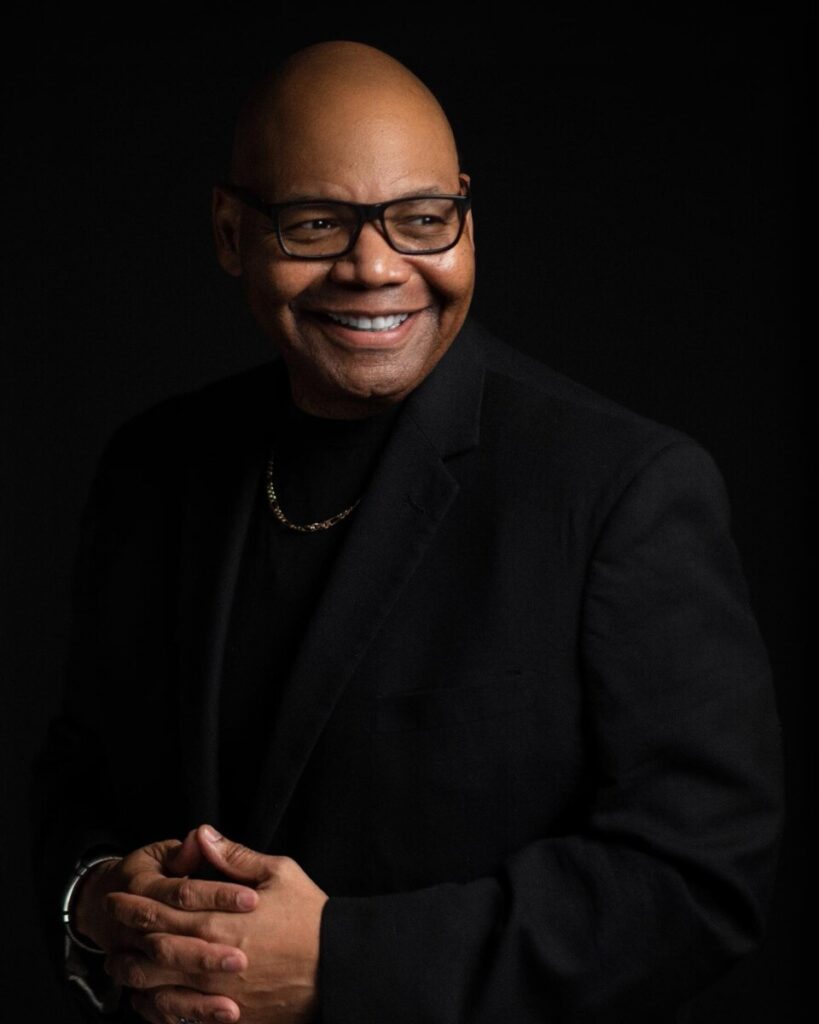
Reverend Ruth was constrained by a young Pastor who while accepting of her call to ministry, did not have the cultural capital to advocate on her behalf. Pastor John Robert Adolph became the Pastor of Antioch in 1996, shortly after graduating with his Master of Divinity from the Interdenominational Theological Center. Pastor Adolph was raised believing that women were forbidden from preaching, but during his seminary journey had come to know differently and was now a proponent of women in ministry. Upon meeting Reverend Ruth, he was drawn to her ability to be graceful even in the “hell” she was going through because of her call.8 Unfortunately, the same deacons who were malicious to Reverend Ruth were now battling Pastor Adolph. The church culture in 1996 was such that the Deacons were in control of decision making in the Church and did not plan to relinquish that control to this young man the Church had recently elected.
Reverend Doctor John R. Adolph, Pastor of Antioch Missionary Baptist Church
Pastor Adolph brought with him a dynamic preaching style and a love for God’s people which was sparking a revitalization in the Church with an increasing number of younger people becoming members of Antioch. Pastor Adolph was in a constant and bitter battle with a remnant of the Deacons who were not willing to work with him, and this battle included his personal support of Reverend Ruth. Pastor Adolph recalls, “as a Pastor in my first year, I was not able to give her much support as her fight and my fight to ENDURE as the pastor of the church took place simultaneously.” In short, “while she was being removed from meetings and pulpits, I was fighting to be included in meetings and to remain in the pulpit.”9 While Pastor Adolph supported her and attempted to stand in solidarity with her, he regrets that she never had the opportunity to preach a Sunday service at Antioch before her death.
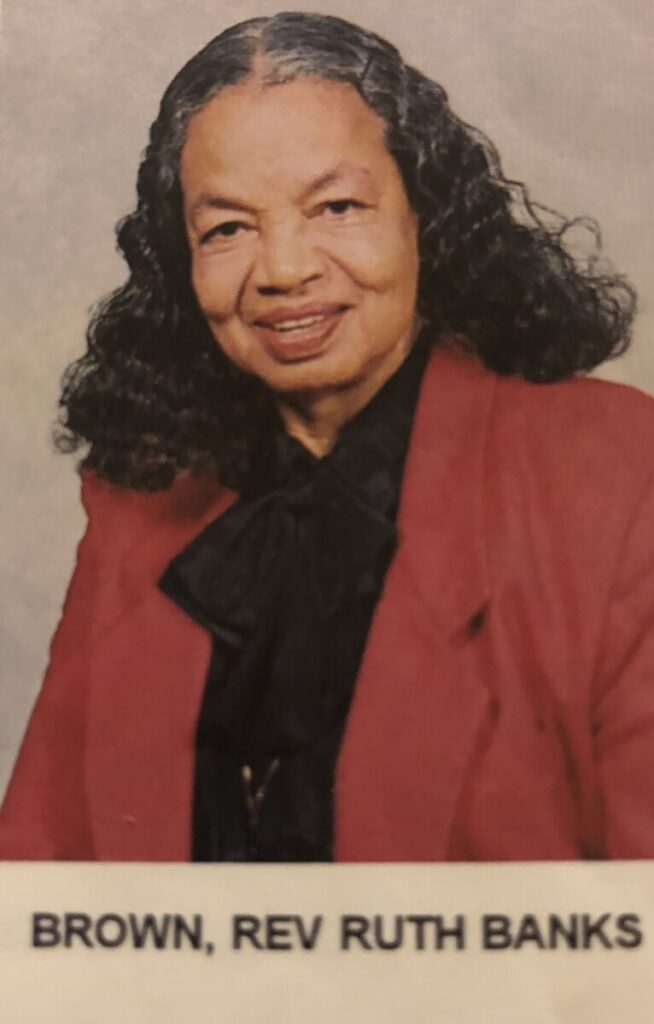
In the context of these constraints, Reverend Ruth Banks Brown is an example of womanist moral agency because she persevered despite the obstacles placed before her, found alternative ways to do ministry, and though she knew there were other churches that would affirm and accept her as a woman in ministry, she remained at Antioch Missionary Baptist Church to fight for the equality and acceptance of herself and fellow women clergy. This desire to open avenues for women in ministry was something Reverend Ruth was able to see realized at Antioch Baptist Church. She lived to see the first group of women be licensed at Antioch under Pastor Adolph. A group of three women who had expressed their call to ministry and had completed the licensing process were able to preach their first sermons and be licensed for ministry at Antioch Missionary Baptist Church. Reverend Ruth attended this service and was overcome with joy that this group of women were being embraced by the congregation10 The ways in which Reverend Ruth opposed her enemies had begun the work of changing the hearts of some of those malicious Deacons, and the influx of younger and more liberal people to the Church helped to change the Church’s acceptance of women in ministry.
Reverend Ruth Banks Brown – An illustration of a Womanist Moral Agen
“I’m not sure about a lot of things, but I’m sure that God loves me, and that I am called to ministry.”
Reverend Ruth Naomi Banks Brown
Lorraine Lemons sees Reverend Ruth as a moral agent because she continued with her ministry and kept on working to bring God’s words to all she met. She remembers her as “a beautiful woman who was very dedicated to her mission.11 Edward, II sees his mother as a moral agent because she lived what she spoke, as she was the same person in Church and outside of Church, and while she was a reflection of her husband, she never lost her identity as a hardworking and generous woman.12 Emma Brown sees Reverend Ruth as a moral agent because though she was constrained by male clergy who did not accept her and would not grant her entrance to the ministerial alliance, she persisted in seeking access to membership.13 Reverend Ruth Naomi Banks Brown stands as a womanist moral agent under constraint because in spite of all opposition she made strides for herself and for the future generations of women who would follow in her footsteps.
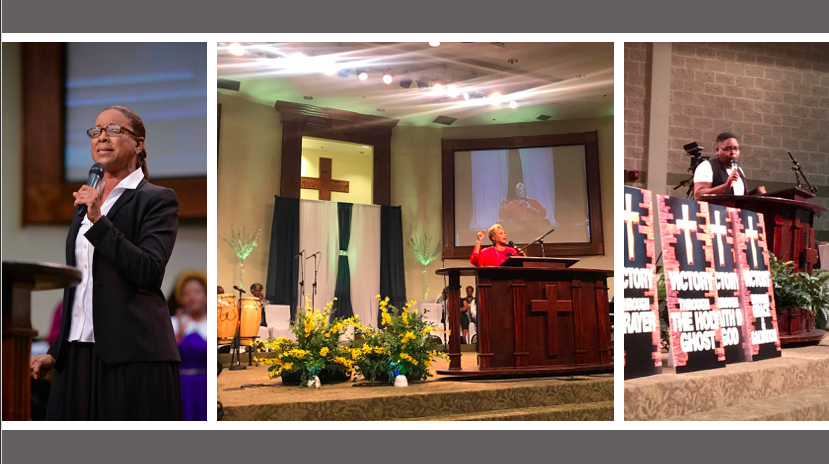

Since Reverend Ruth’s death in 2002, forty-eight women have been licensed for ministry at Antioch Missionary Baptist Church of Beaumont, Texas, including me, Reverend Diandra Darby. While only one woman has been ordained by Pastor Adolph, Antioch is working to be a Church that is accepting and affirming for women to walk fully in the call of God for their lives.
Want to know more about this author? Click here!
Footnotes
Footnotes
- “Celebration of Life for Reverend Ruth Banks Brown,” postmarked Houston, October 15, 2021 (Edward Brown to author).
- Emma Brown, Interview by author, October 21, 2021
- Emma Brown, 2021
- John Adolph, Interview by author, September 23, 2021
- John Adolph, 2021
- Lorraine Lemons, email message to author, October 20, 2021
- Edward Brown, Interview by author, October 15, 2021.
- John Adolph, 2021.
- John Adolph, 2021.
- Ibid.
- Lorraine Lemons, 2021.
- Edward Brown, 2021.
- Emma Brown, 2021.
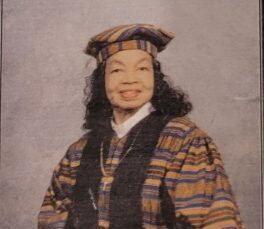
Minister Darby, thank you This is a phenomenal read about a phenomenal woman and daughter of God, Mom Ruth displayed His graces in every role of her life. I have only heard about her stories for she passed before I would get to meet her. Her son, my husband, Edward W. Brown II, has shared so many memories of her and much of what she endured. When I get to heaven, I will hear her whole story and get to know Mom Ruth. Blessed assurance!
Cheryl D. Brown
Wow!!!!!!!! This is awesome and great history of our church. Such a beautiful woman of God. I’m so glad to have known her.